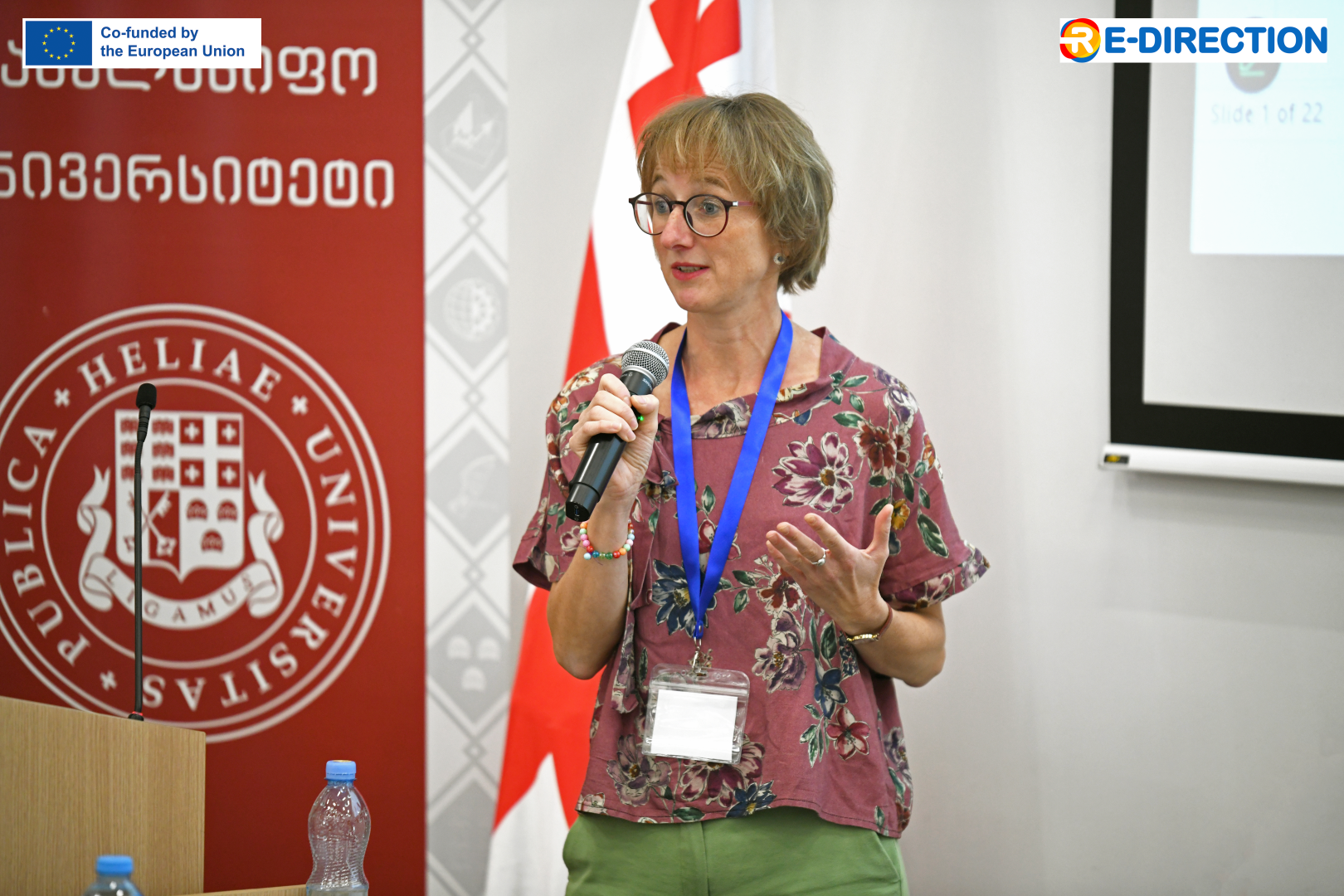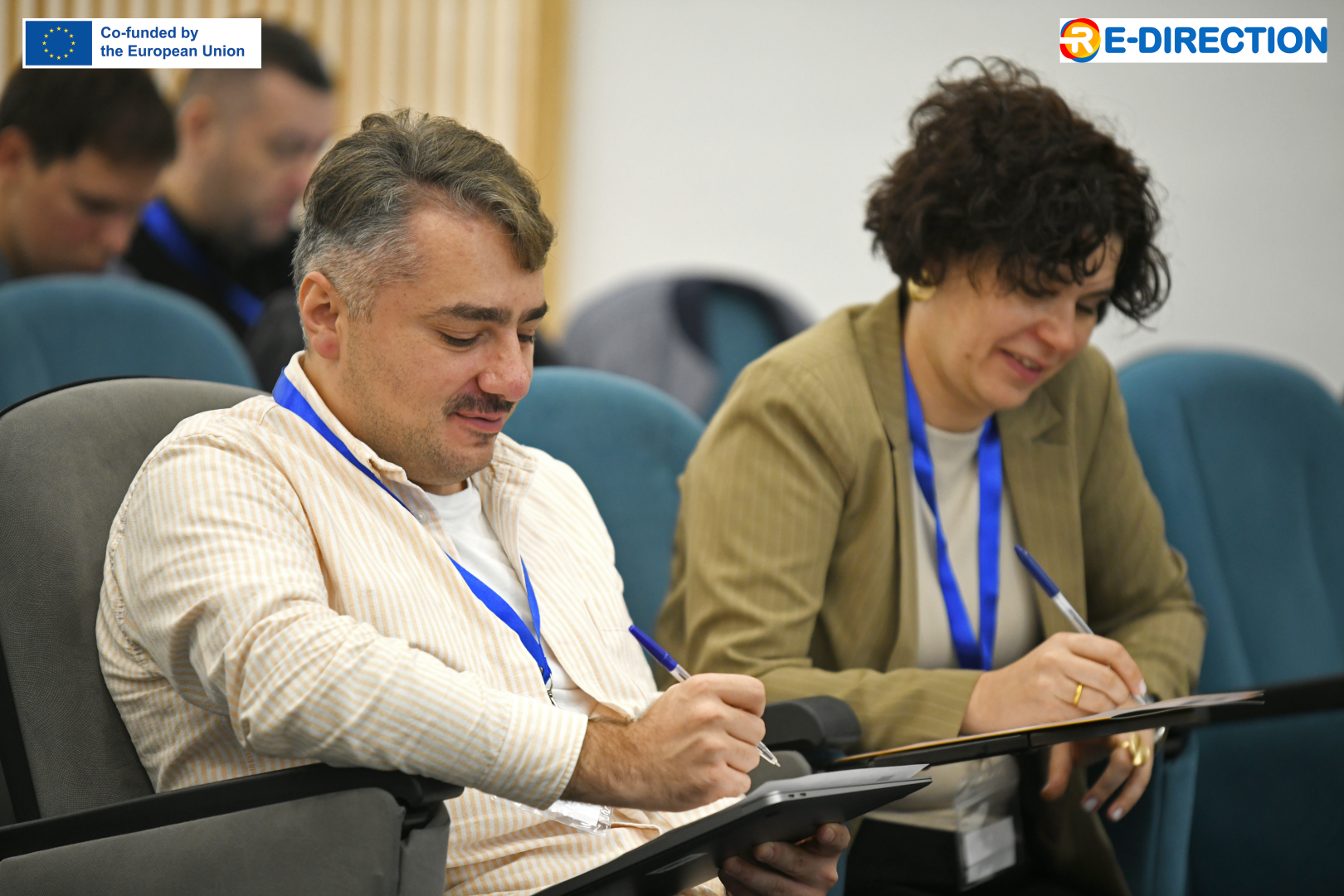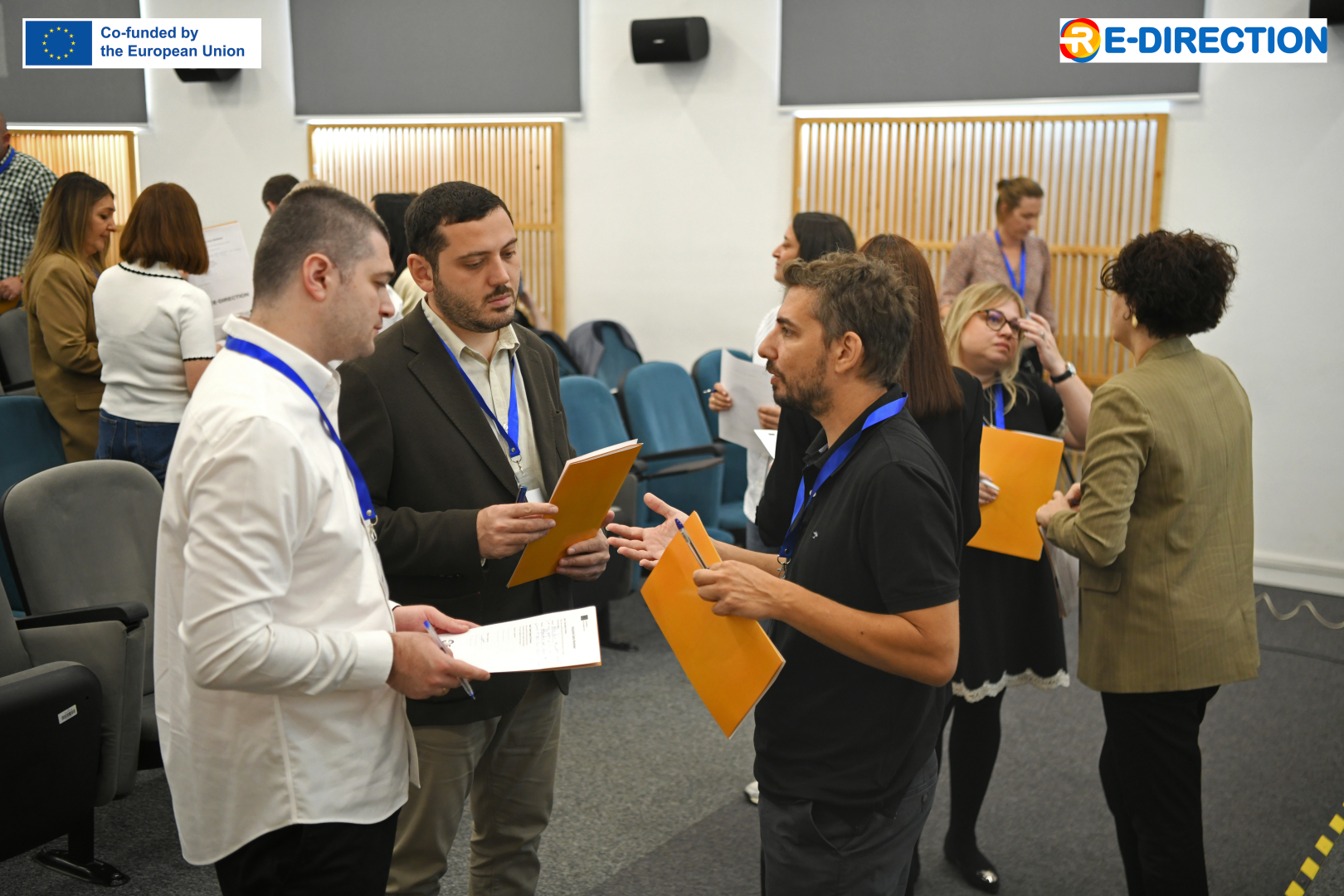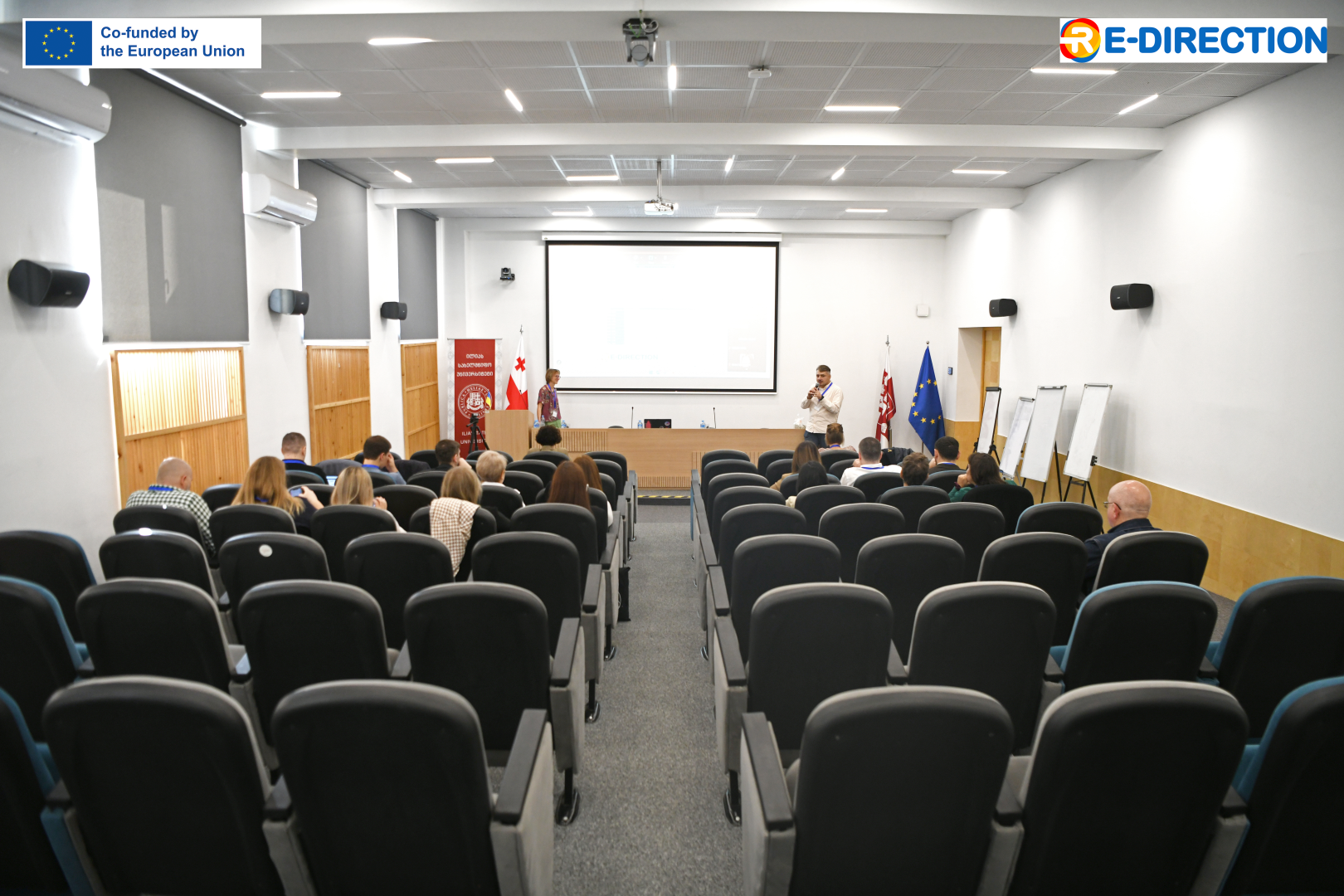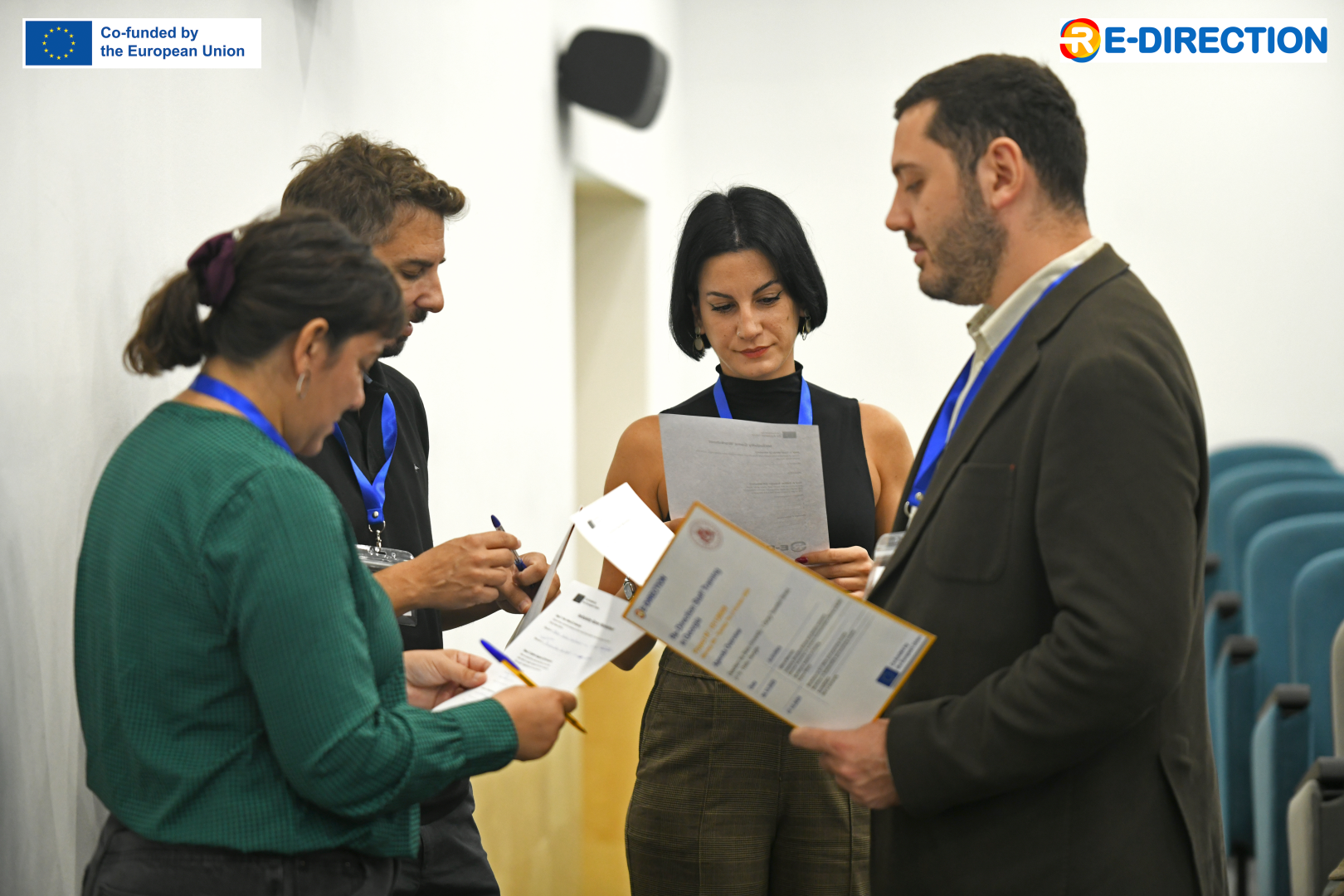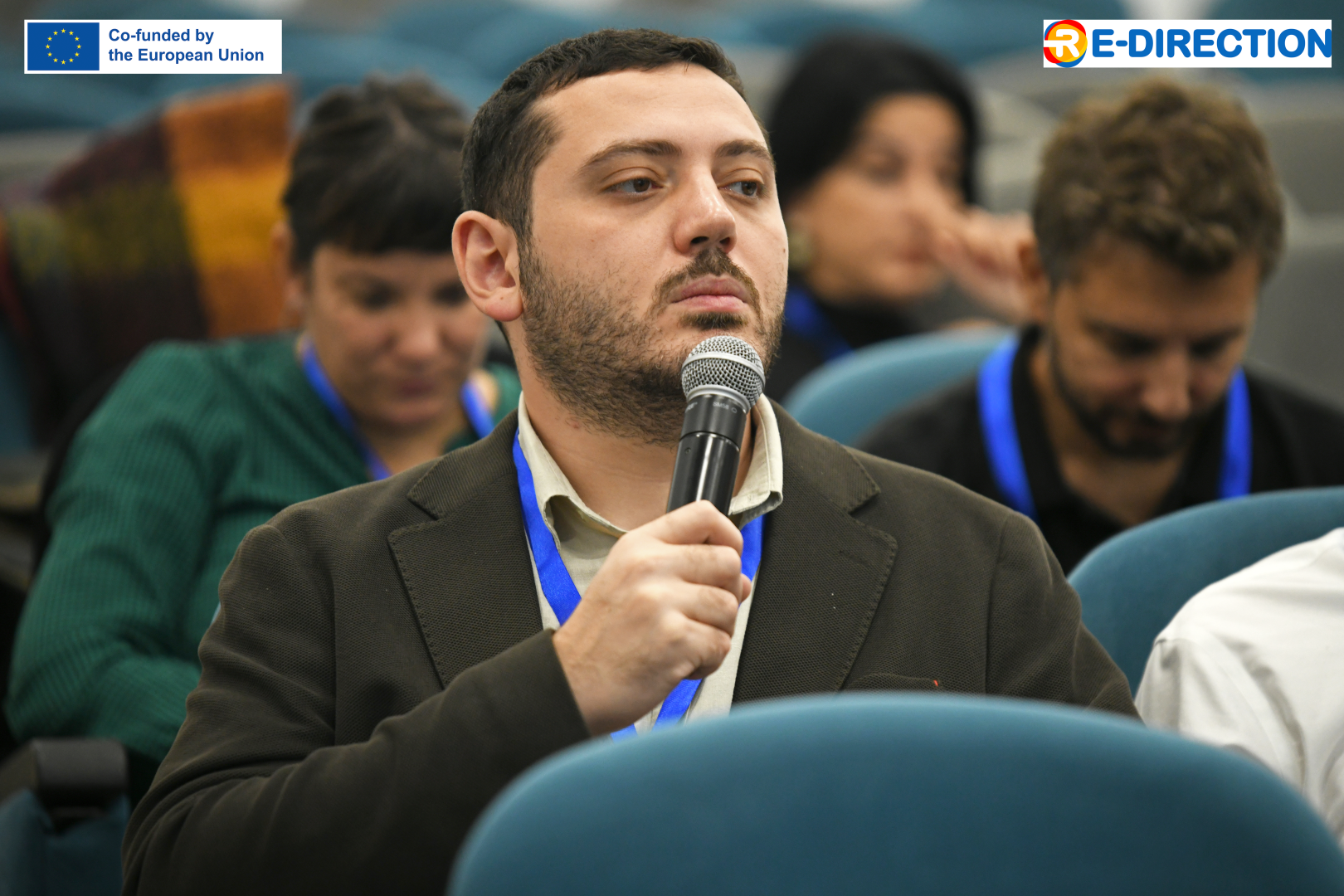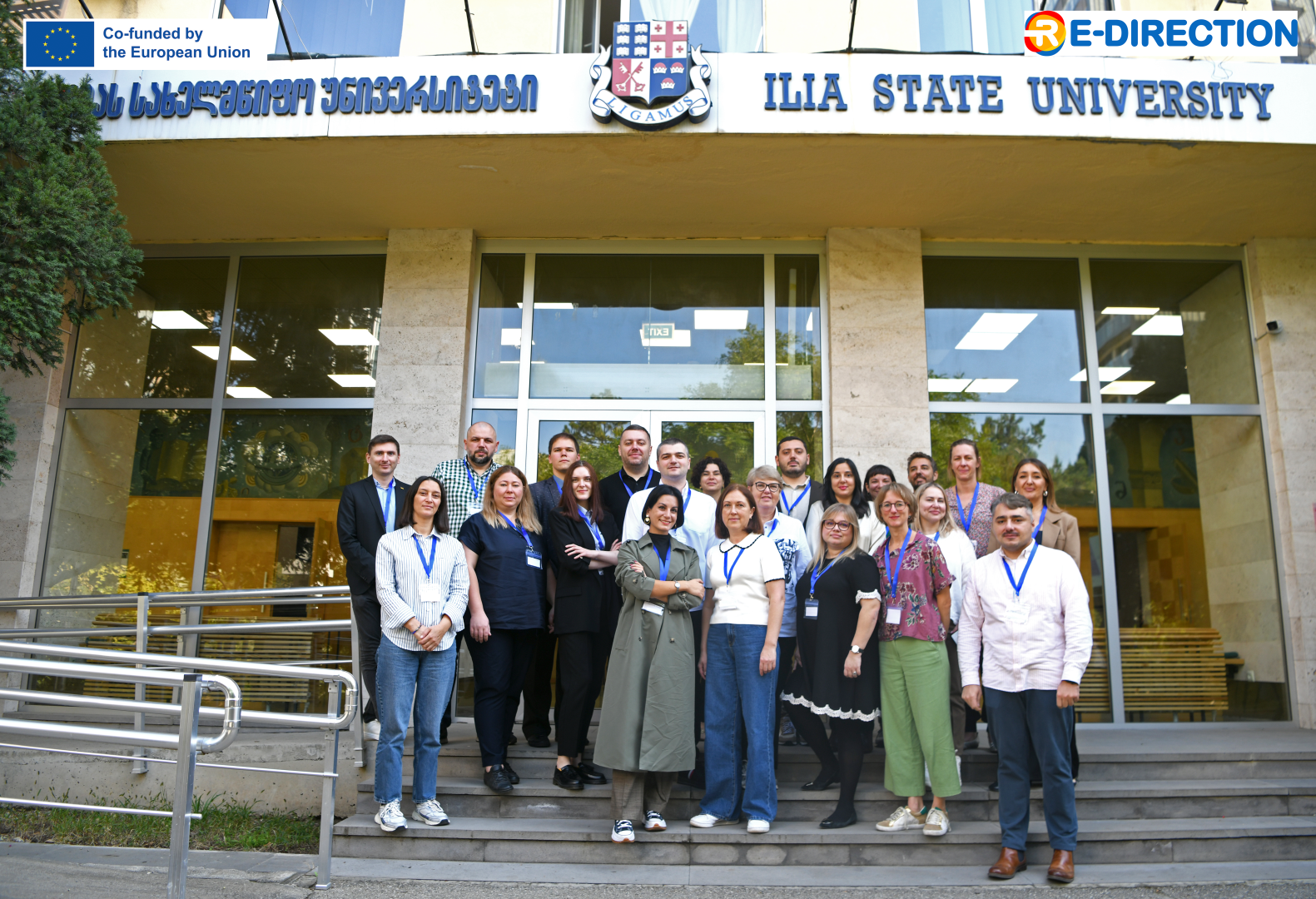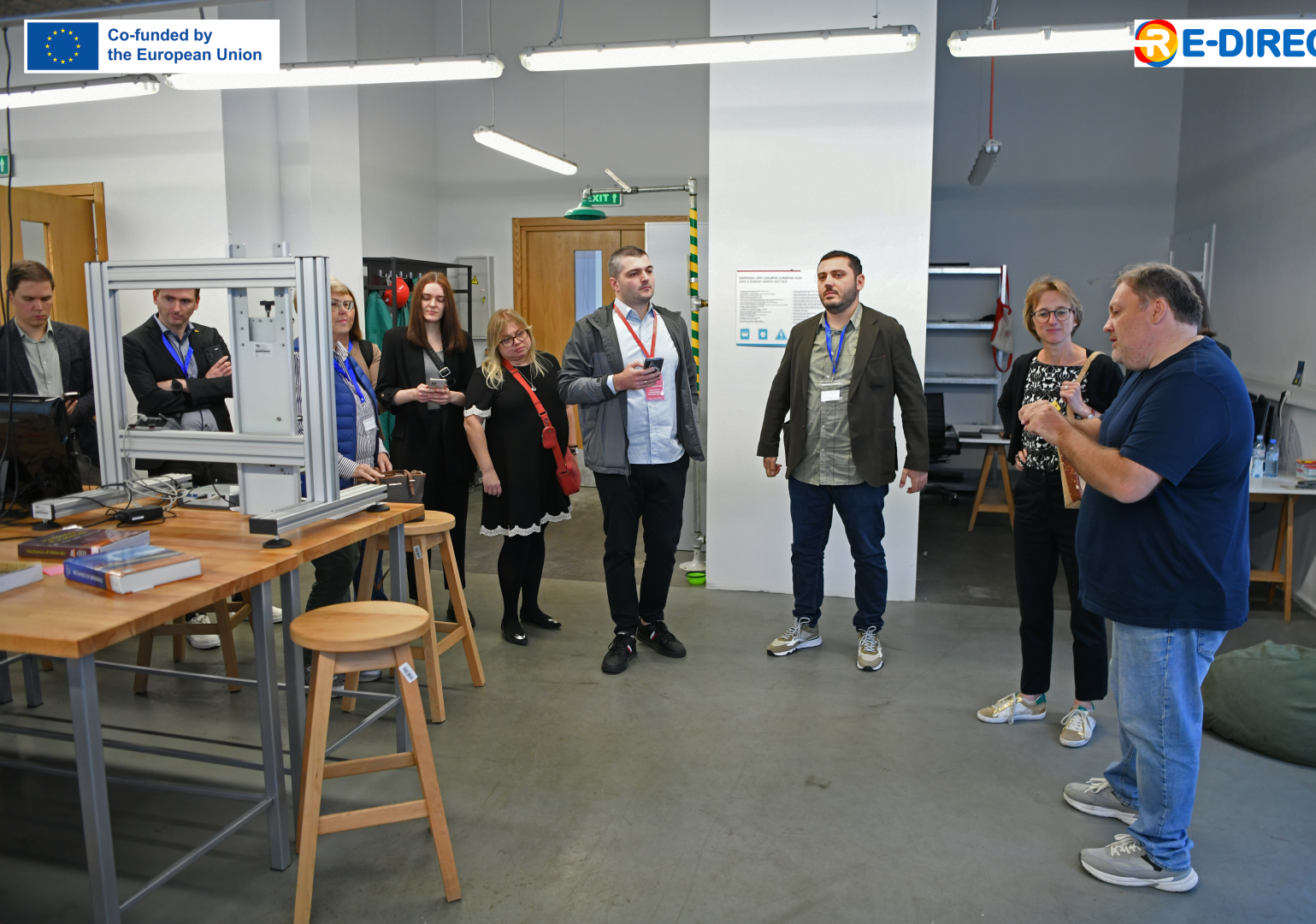On October 6–7, Ilia State University hosted a staff training within the framework of the Erasmus + CBHE project RE-DIRECTION - Redefining Higher Education in a Digital Context, while Promoting a Common, Inclusive and Sustainable Framework based on EU Best Practices and Policy Recommendations.
Representing Caucasus University, the event was attended by Akaki Kapanadze, Director of the Project Management Department; Maksim Iavich, Head of the Cyber Security Center; and Professor Sergey Simonov.
The first day of the event was dedicated to introducing the principles of inclusivity and presenting the corresponding guide. Project participants also discussed the role of e-learning platforms in promoting inclusive education and the challenges associated with them.
On the second day, participants reviewed operational aspects of piloting, took part in workshops on ICT and e-learning in the context of sustainable development, and attended a training on digital information management. In addition to interactive sessions, participants had the opportunity to visit the university’s technological laboratories. During the concluding part of the event, discussions focused on the upcoming international meeting and future plans.
The main goal of the event was to strengthen the capacities of project personnel, particularly to enhance their knowledge and skills in inclusive communication, e-learning, the use of digital technologies, and the integration of e-learning within sustainable development processes. The two-day intensive training enabled participants to prepare for the effective implementation of the project’s piloting phase and the upcoming international event.
In addition to Caucasus University, 15 private and public organizations, including leading European universities from Germany, Greece, Ukraine and Georgia, are involved in the project, as well as the Ministries of Education and Science of Georgia and Ukraine.
Funded by the European Union. Views and opinions expressed are however those of the author(s) only and do not necessarily reflect those of the European Union or European Education and Culture Executive Agency (EACEA). Neither the European Union nor the European Education and Culture Executive Agency can be held responsible for them.

